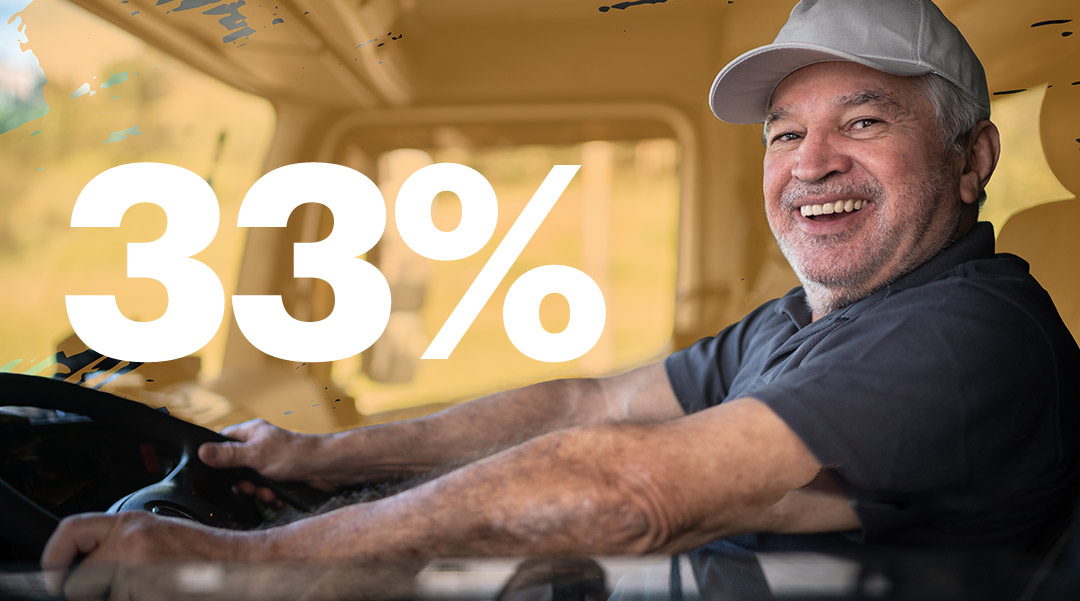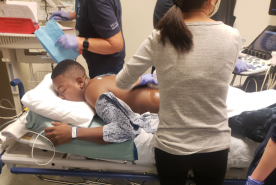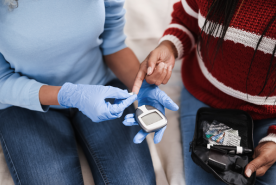Table of Contents
What is diabetes?
Diabetes is a disease in which your body cannot regulate sugar. It occurs if your body does not make insulin or cannot use it very well. Insulin is a hormone that controls how much sugar is in your blood. Blood sugar is also called "glucose" A high blood sugar level can cause problems in many parts of your body.
Diabetes cannot be cured, but it can be well managed with diet, exercise, and medications. Many people live a long, active life with diabetes.
Type 1 diabetes
With type 1 diabetes, your body does not make enough insulin. Type 1 usually starts when you are a child or young adult, but it can happen at any age. About 5 to 10 percent of all people with diabetes have type 1. It is treated with:
- Taking daily insulin shots or using an insulin pump
- Healthy eating
- Physical activity
Type 2 diabetes
With type 2 diabetes, your body makes insulin but cannot use it well. Type 2 usually starts when you are over age 40, but it is becoming more common in younger people. In fact, many young people and children are developing type 2 nowadays.
About 90 to 95% of all people with diabetes have type 2. It is the most common type of diabetes. It is often associated with being overweight and tends to run in families.
Initially, type 2 diabetes may be treated with exercise, weight control, and a healthier diet. If these are not enough to control blood sugar, pills or insulin may be needed.
Am I at risk for diabetes?
Anyone can get diabetes. However, you have a higher risk for diabetes if you are:
- Overweight
- Inactive (exercise less than three times a week)
- African-American/Black, American Indian, Alaskan Native, Hispanic, Pacific Islander or Asian
- Age 45 or older
- Have a family history of diabetes
- Have high blood pressure
- Have abnormal blood fats (cholesterol or triglycerides)
Some of these risk factors are things you cannot change, like your ethnic background or age. But others are things you can change, like being overweight or having an inactive lifestyle.
What are the "warning signs" of diabetes?
Not everyone has warning signs. Diabetes is called a "silent disease" because many people do not have any. You may have some warning signs, or you may not. Some of the warning signs are:
- Being very thirsty
- Urinating often (especially at night)
- Feeling very hungry or tired
- Losing weight without trying
- Having sores that heal slowly
- Having dry, itchy skin
- Losing the feeling in your feet or having tingling in your feet
- Having blurry eyesight
What if I already have diabetes?
Talk to your healthcare team. They will work with you to create a treatment plan to manage your diabetes. Your treatment plan may include diet, exercise, and medication. By keeping your blood sugar, blood pressure, and cholesterol under control, you can stop or slow down other health problems caused by diabetes. Learn all you can and take an active role in your healthcare.
Where can I get more information?
The National Kidney Foundation has free booklets that provide more information about diabetes. Call the national toll-free number 855.653.2273 and ask for free booklets on diabetes. You can see these and other titles at www.kidney.org/store.
Date Reviewed: November 2014
If you would like more information, please contact us.


















